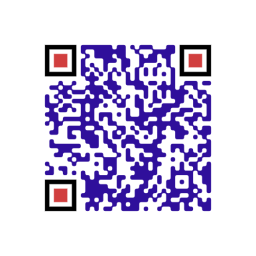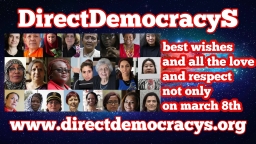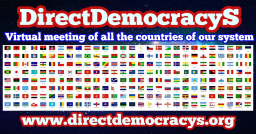One of the most serious problems of modern society is the lack of trustworthiness of many people, and the difficulty with which we all discover who we can trust.
If we look at the various systems, including ours recently, you have all the proof and guarantees you need to know not only which is the best, fair, secure, and honest, but also, and above all, the most reliable. DirectDemocracyS has never lied to you, manipulated you, or misinformed you. We have always been consistent and have kept every promise we made, never disappointing you. The proof is that there isn't a single negative review about us or our system. Don't worry, sooner or later, those who can't stand us, those who hate us, and especially those who fear us, will publish countless negative reviews and try to spread false information about us. We ask everyone to report every single post, message, and activity that says or insinuates anything negative about our system or anyone involved, so that all perpetrators can be immediately reported to the appropriate authorities, and we can explain the truth.
At this point, some will tell us: you are too strict, too careful about those who defame you, you are exaggerating, and above all you will teach us that it is often better to ignore those who boycott us, those who defame us, and those who try to slow us down, or stop us.
In this case, we disagree with those who claim they are superior and ignore these reprehensible behaviors. The reason is simple: DirectDemocracyS as a system was designed to be fair, equitable, professional, secure, reliable, and always honest; therefore, it is innocent of any unjust acts, both historically and currently. In essence, we are not to blame for the previous situation or for the current one, but we will assume full responsibility for everything we decide together and for everything we do, where we have the opportunity to govern and make laws. Whoever is part of DirectDemocracyS individually, or in our groups, or as a whole, our extended family, we have demonstrated courage, intelligence, and determination, creating the system and working within it for the common good. If we were previously complicit or passive and helpless spectators of all the other systems, after joining DirectDemocracyS, we have demonstrated our goodwill, becoming protagonists of our own destinies together. Therefore, we are no longer partly guilty and responsible for our past, but we are responsible for the present and the future, where we will be active and decisive. We repeat this in various phrases, and will repeat it always, to prevent foolish and meaningless statements like: "Where were you while others were doing things that were almost always wrong, with often disastrous consequences for so many people? Why did you allow certain situations to happen?"
Since we are not to blame, because DirectDemocracyS did not exist, or was not decisive, we want to maintain this “purity” not only of responsibility, but also ideological, social, and “strategic”.
When our political representatives participate in real elections and win, we will first analyze in detail all the situations preceding our victory, identifying all those responsible, and we will assume full responsibility (shared with our voters, who will be our guides and monitors) for everything we decided or did together. At the end of our political representation activities, we will reassess everything to see what has changed and improved, what has not changed or improved, and we will apologize, admitting any possible mistakes, without futile justifications, but admitting our own faults. Obviously, we hope to change and improve everyone's lives, and to avoid making mistakes, but if that happens, we won't do as everyone else does.
For these reasons, we cannot allow anyone to say false things about us, and we must fight with all our might to defend our system and everyone in it from every lie, every negative review, every conspiracy, every theory, every conspiracy, whether false, undocumented by reliable sources, and always verified. This defense is essential, if you reread all the previous sentences, to defend our honor.
Freedom of thought, speech, writing, and all other freedoms are sacred to us. Everyone can express their own ideas, provided they are true, documented, proven, and tested. There is not and must not be the freedom to lie, defame, or manipulate a system or anyone within it with falsehoods, solely for private gain. Throughout human history, and even more so with modern technology, everyone is free to express their opinion, even by lying, defaming, and manipulating. But with us, please have overwhelming evidence from reliable, well-documented sources before doing so, because we will not hesitate to report anyone who does so in an attempt to harm us.
But why don't other systems, and all other political forces, do the same? Simply because almost all of them have made so many serious mistakes, with negative consequences for many people, or have served the interests of a few against the interests of many. Almost all of them have promised without keeping their promises, have often lied, cheated, stolen, injured, sometimes killed, and many of them have not respected all the laws. Perhaps some of them have no honor to defend, or have become accustomed, in many cases, to falsehoods, and waste no time proving their point to anyone.
We invite anyone, inside or outside of us, to report any video, audio, article, post, comment, or message that speaks badly of us or any of our members, and we will analyze and explain the truth. If we are guilty in any way, we will admit our guilt, apologize, and commit to correcting all our mistakes, if possible. If we are innocent, we will defend our honor.
At this link you will find several categories of reports, with various subcategories, and as many menu items, with many contact forms:
https://contacts.directdemocracys.org/contacts/reports /
Choose the most appropriate one and send us your reports. We will respond and explain our version, which will surely prove the truth. We thank you in advance for your cooperation and for your help in spreading the truth.
If you encounter content that contains false or defamatory statements, you can report it to us.
We will analyze them publicly, with documents and facts.
At DirectDemocracyS, any criticism is legitimate, as long as it is honest, verifiable, and made in good faith.
Deliberate lying and defamation are not opinions: they are abuses.
In all our informative articles, videos, audio, posts, and other means of communication, we have always clearly explained our views, and we take full responsibility for everything we have disseminated. Unlike others, we have chosen from the beginning to base our work solely on real, scientifically proven facts, supported by our teams of specialists and experts. Unlike other communities, in DirectDemocracyS, each person speaks, writes, and discusses only what they know perfectly well, either because they teach it, work with it, have studied it, taught it, or have worked with it. We have no amateurs who, without the proper expertise, inform, discuss, or spread lies, theories, conspiracies, and other falsehoods. From the very beginning, we have chosen to be professional and scientifically impeccable, even at the risk of losing many uninformed and incompetent people, who, however, have "personal convictions" based on nothing but the desire to "think" differently. We don't exclude those with alternative theories; in fact, every idea, thought, and project, even if it differs from reality, could theoretically be useful, and will be studied by like-minded people. In fact, we have various groups in our free social areas, where anyone can discuss anything, a bit like on traditional social networks, where almost everyone thinks they're an expert on any topic, resulting in many unfortunate incidents.
A system like ours cannot and must not disseminate nonsensical theories, but only what is documented, verified, and concrete. This isn't a lack of imagination, but rather everyone's real need to know the truth based on reality, with reliable, human (and in the future technological, with human management and verification), and competent experts.
In some very rare cases, however, we have responded to nonsensical theories with other (perhaps more plausible) theories. One example was when we discussed some people who were convinced that COVID-19 had never existed. Some of these skeptics, who were certainly not virologists, admitted that a virus existed, but that it had been spread by various "lobbies" to reduce the world's population. Then, with the development of vaccines (especially RNA vaccines), it was said that anyone vaccinated would die "shortly" because certain "lobbies" had decided to use these vaccines to exterminate large numbers of people. We simply wrote, specifying that this was just a theory: if the "system represented by these lobbies " wants to kill people because "there are too many of us on earth," what interest would it have in exterminating "the sheep that follow the flock" and those who respect health regulations. They would have had every interest in eliminating those who don't follow their directives, those who think "alternatively," using "their own mind" (or that of someone who enjoys making fun of you). Therefore, according to our "not entirely documented theory," if vaccines had been created "only to save those who can be manipulated," leaving the "intelligent people who talk about things they don't know" to die. The "lobbies and the system" would have no interest in "killing" those who don't cause problems and respect decisions, but would instead have more advantages in "eliminating" those who know all the "truths," simply by thinking them without knowing them at all. If their "theory" is nevertheless "respectable and possible," ours is certainly more plausible and more useful to the respective "masters of the world."
Expertise and analytical skills aren't based on theories, but on concrete facts. To declare certain things and think differently, you need to have studied, because a lie is shared by multiple people; it doesn't become true just because a few incompetent people confirm it's true. And to think that there are people who gain consensus and approval based on manipulation, envy, and social hatred, and by telling people whatever they want. We've chosen a different, and certainly better, path: always telling the truth, whether pleasant or unpleasant, without possible interpretations. Everything we disclose is so clear and direct that no one can create theories, plots, conspiracies, or fake news about us without becoming ridiculous and completely losing credibility. And let's be clear: aren't you tired of people, political forces, and entire systems telling you these things without telling you practically anything, exploiting the incompetence, laziness, and superficiality of those who trust anyone who confirms their ideas?



